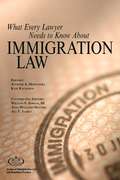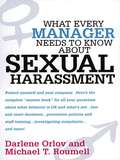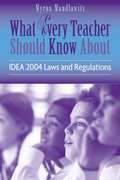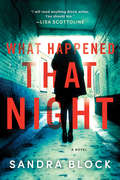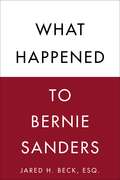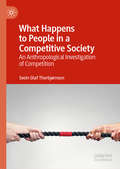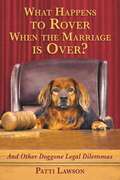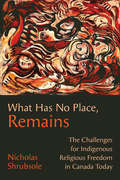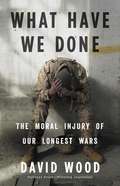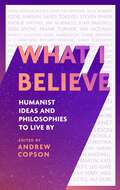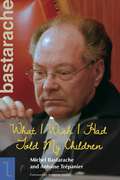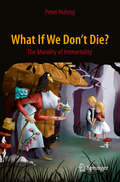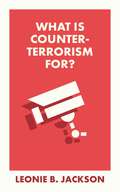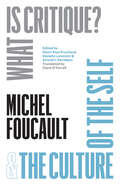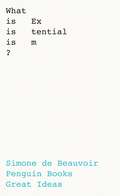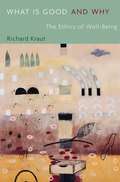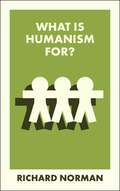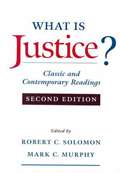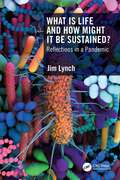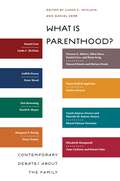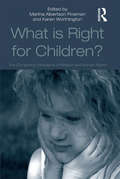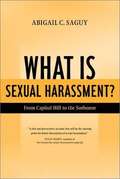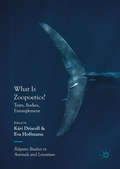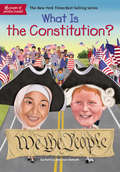- Table View
- List View
What Every Lawyer Needs to Know About Immigration Law
by Kate Kalmykov Jennifer HermanskyThis book serves as a primer for understanding concepts like how immigration law interacts with other practice areas, how to spot immigration issues for clients, and when to involve an immigration attorney for assistance with a client.
What Every Manager Needs to Know About Sexual Harassment
by Darlene Orlov Michael RoumellCan you say anything about sex at the office anymore? Yes, maybe, but read this first. Sexual harassment is a malign specter hovering over workplaces everywhere. One touch of its foul breath can devastate businesses, causing them to lose millions of dollars, not to mention waste bundles of time and energy. Needless to say, organizations are running scared. This book provides managers with vital information to protect themselves and their companies from lawsuits, bad publicity, decreased employee morale, and other associated miseries. Topics covered include: * laws and court decisions (including the most recent Supreme Court rulings) * what behavior is acceptable--and what isn't * preventive policies and staff training * investigating complaints, and more. With one of every three cases filed with the EEOC involving a sexual harassment claim, managers need help. This complete "answer book"--with real-life scenarios, self-help quizzes, checklists, and thoughtful analysis--gives them just the guidance they need.
What Every Teacher Should Know About IDEA 2004 Laws and Regulations
by Myrna MandlawitzA timely, jargon-free guide to the IDEA 2004 "laws and regs!" This handy booklet provides everything teachers and administrators should know about IDEA 2004 and its practical implications. It includes concise descriptions of the statutes, with a side-by-side comparison of the "old" regulations versus those just issued by the DOE in August 2006. A critical "top-drawer" reference for every educator! This clear, comprehensive, jargon-free resource outlines IDEA 2004 and its regulations and highlights their practical implications for practicing and pre-service teachers and administrators. The booklet provides concise descriptions of the aspects of the IDEA law every classroom teacher should know, with a side-by-side comparison of the "old" regulations versus those just issued in August 2006. When a little friendly background would help the reader better understand the practical implications of the regulations, an additional note is provided.
What Happened That Night: A Novel
by Sandra BlockShe doesn't remember that night. But she will never be the same.One moment, Dahlia is a successful Harvard student; the next, she wakes up from a party, the victim of a brutal assault. Her life veers into a tailspin, and what's worse — her memory of the attack has been ripped away, leaving a cold rage in its wayke.Now, years later, Dahlia is a tattooed paralegal suffering from PTSD and still haunted by that night. Until one day, a video surfaces online, and Dahlia sees her attack for the first time. Now she knows what happened to her. And she knows who is to blame. Her rage is no longer cold, but burning, red hot. And she is about to make everyone pay.
What Happened to Bernie Sanders
by Jared H. Esq.For the first time, the definitive answer to the relative disappearance of Bernie Sanders and his political revolution in our new Trumpocracy.One year into Donald Trump’s presidency, the US 2016 presidential election is still being fought by both parties. As the case of Russian hacking and collusion is investigated, and Hillary Clinton desperately attempts to explain “What Happened” to her and why she lost, a more important question, one haunted by shadowy tactics and campaign double-dealing, rings out: What happened to Bernie Sanders?Jared H. Beck, Esq., the lawyer suing the Democratic National Committee and Debbie Wasserman Schultz for collusion and fraud?for conspiring as a whole to make sure Hillary Clinton was the Democratic presidential candidate?has now written the book on what truly transpired during the Democratic primaries and National Convention. What Happened to Bernie Sanders? is organized in sections: Democracy Demands the Truth Stories with No Fingerprints A Bankrupt Institution Rule of Law Demands Consequences Using uncovered documents and other primary sources, Beck shows that Bernie Sanders lost to Hillary Clinton because he never had a chance to win. He illustrates how a web of forces, emanating from elite interests through the mainstream media and Democratic political establishment, and fronted by the Democratic National Committee, operated to ensure that Clinton would secure the nomination. The story of the 2016 Democratic primaries is not one of being “stronger together” or “making America great again”; it is one of how corruption has critically eroded America’s political institutions to the point of crippling democracy itself.
What Happens to People in a Competitive Society: An Anthropological Investigation of Competition
by Svein Olaf ThorbjørnsenIn this book, author Svein Olaf Thorbjørnsen probes the question: What is at stake for human beings in a society dominated by competition, particularly economic competition? Is competition endemic to human nature? Does it preserve the dignity and intrinsic value of the human being? Does it secure better living conditions? In a way, the answer to these queries is a simple “yes.” It can allow for superior satisfaction of fundamental needs; legitimate self-love and self-realization; and encourage positive feelings upon mastering a skill. At the same time, however, competition can also contribute to a strong materialistic self-interest and support classicism, social ranking, and elitism: other human beings become only means to a personal success, thus jeopardizing fellowship and collaboration. In a hyper-competitive environment, some of the same positive human values mentioned above—self-love, self-realisation, individuality, and freedom—can be viewed to pose a threat to the realisation of one’s potential and to one’s true humanity. These competing, contradictory aspects of competition are presented and discussed from perspectives across varying disciplines, from social anthropology and economics to history, ethics, philosophy and theology.
What Happens to Rover When the Marriage is Over?: And Other Doggone Legal Dilemmas
by Patti Lawson“If you love your dog, this is the most important book you’ll ever read” (Jane Velez-Mitchell, New York Times–bestselling author). Here is an engaging, informative, and no-nonsense look at the everyday situations and issues—and their legal consequences—that affect dogs and their owners. Dished up with a good deal of humor, heart, and pragmatic counsel, every chapter covers a different issue that dogs and their pet parents may face at some time. Author Patti Lawson presents these issues conversationally—not couched in legalese—so every pet parent, grandparent, or sibling will know what to expect. With real-life stories and real court cases, this book covers topics people rarely think to ask about or research—until it’s too late: Fighting city hall when a dog runs afoul of the law The rights of pet parents to take their dogs on public transportation Providing for a canine companion after an owner’s death Keeping custody of their pet should they divorce or separate Confiscation of a pet by a humane officer if they violate a city ordinance Housing rights and those of their dog Breed-specific legislation . . . and more! Pet parents can make sure their dog enjoys every legal right and protection available with the great advice and information Lawson presents in this book. What Happens to Rover When the Marriage is Over? is the go-to guide for keeping your pooch out of the pound and you out of court.
What Has No Place, Remains: The Challenges for Indigenous Religious Freedom in Canada Today
by Nicholas ShrubsoleThe desire to erase the religions of Indigenous Peoples is an ideological fixture of the colonial project that marked the first century of Canada’s nationhood. While the ban on certain Indigenous religious practices was lifted after the Second World War, it was not until 1982 that Canada recognized Aboriginal rights, constitutionally protecting the diverse cultures of Indigenous Peoples. As former prime minister Stephen Harper stated in Canada’s apology for Indian residential schools, the desire to destroy Indigenous cultures, including religions, has no place in Canada today. And yet Indigenous religions continue to remain under threat. Framed through a postcolonial lens, What Has No Place, Remains analyses state actions, responses, and decisions on matters of Indigenous religious freedom. The book is particularly concerned with legal cases, such as Ktunaxa Nation v. British Columbia (2017), but also draws on political negotiations, such as those at Voisey’s Bay, and standoffs, such as the one at Gustafsen Lake, to generate a more comprehensive picture of the challenges for Indigenous religious freedom beyond Canada’s courts. With particular attention to cosmologically significant space, this book provides the first comprehensive assessment of the conceptual, cultural, political, social, and legal reasons why religious freedom for Indigenous Peoples is currently an impossibility in Canada.
What Have We Done: The Moral Injury of Our Longest Wars
by David WoodFrom Pulitzer Prize-winning journalist David Wood, a battlefield view of moral injury, the signature wound of America's 21st century wars. Most Americans are now familiar with Post Traumatic Stress Disorder (PTSD) and its prevalence among troops. In this groundbreaking new book, David Wood examines the far more pervasive yet less understood experience of those we send to war: moral injury, the violation of our fundamental values of right and wrong that so often occurs in the impossible moral dilemmas of modern conflict. Featuring portraits of combat veterans and leading mental health researchers, along with Wood's personal observations of war and the young Americans deployed in Iraq and Afghanistan, WHAT HAVE WE DONE offers an unflinching look at war and those who volunteer for it: the thrill and pride of service and, too often, the scars of moral injury.Impeccably researched and deeply personal, WHAT HAVE WE DONE is a compassionate, finely drawn study of modern war and those caught up in it. It is a call to acknowledge our newest generation of veterans by listening intently to them and absorbing their stories; and, as new wars approach, to ponder the inevitable human costs of putting American "boots on the ground."
What I Believe: Humanist ideas and philosophies to live by
by Andrew CopsonDiscover the rich diversity of non-religious thought today in this inspiring collection of interviews with over thirty different humanists in the public eye, including Stephen Fry, Sandi Toksvig and Alice Roberts. Humanists UK Chief Executive Andrew Copson speaks to actors, authors, activists and more to find out what they believe and the values, convictions and opinions they live by. Inspired by the 'What I Believe' essays of two humanist greats - the philosopher Bertrand Russell and the novelist E M Forster - this book opens a window to different humanist perspectives of today. The humanist view of life is progressive and dynamic. All ideas, values, and beliefs are open to question and in this book you will find inspiration to shape your own worldview. Featuring interviews with Jim Al-Khalili, Joan Bakewell, Sarah Bakewell, Sian Berry, Susan Blackmore, Helen Czerski, Alf Dubs, Janet Ellis, Stephen Fry, Rebecca Goldstein, A C Grayling, Natalie Haynes, Leo Igwe, Mike Little, Ian McEwan, Eddie Marsan, S I Martin, Tim Minchin, Diane Munday, Christina Patterson, Hannah Peel, Kate Pickett, Steven Pinker, Nichola Raihani, Alice Roberts, Paul Sinha, Dan Snow, Sandi Toksvig, Frank Turner, Nigel Warburton and Richard Wiseman.
What I Believe: Humanist ideas and philosophies to live by
by Andrew CopsonDiscover the rich diversity of non-religious thought today in this inspiring collection of interviews with over thirty different humanists in the public eye, including Stephen Fry, Sandi Toksvig and Alice Roberts. Humanists UK Chief Executive Andrew Copson speaks to actors, authors, activists and more to find out what they believe and the values, convictions and opinions they live by. Inspired by the 'What I Believe' essays of two humanist greats - the philosopher Bertrand Russell and the novelist E M Forster - this book opens a window to different humanist perspectives of today. The humanist view of life is progressive and dynamic. All ideas, values, and beliefs are open to question and in this book you will find inspiration to shape your own worldview. Featuring interviews with Jim Al-Khalili, Joan Bakewell, Sarah Bakewell, Sian Berry, Susan Blackmore, Helen Czerski, Alf Dubs, Janet Ellis, Stephen Fry, Rebecca Goldstein, A C Grayling, Natalie Haynes, Leo Igwe, Mike Little, Ian McEwan, Eddie Marsan, S I Martin, Tim Minchin, Diane Munday, Christina Patterson, Hannah Peel, Kate Pickett, Steven Pinker, Nichola Raihani, Alice Roberts, Paul Sinha, Dan Snow, Sandi Toksvig, Frank Turner, Nigel Warburton and Richard Wiseman.
What I Wish I Had Told My Children (Biography and memoirs)
by Michel Bastarache Antoine TrépanierIn this intimate volume, Michel Bastarache reveals details of his youth in Acadia and his multiple professional roles before becoming the first Acadian justice to sit on the Supreme Court of Canada. In a letter addressed to his two children who died from an incurable disease, Me. Bastarache recounts his constant fight for equality between francophone and anglophone communities. He reminisces on his commitment among groups protecting francophones outside Québec, then on his careers as teacher, civil servant, lawyer, and judge.In this story, Bastarache takes the reader backstage to his most important causes and he reveals some of the secrets of the highest court in Canada. Me. Bastarache weighs in on the controversy surrounding the Inquiry Commission on the process for appointing judges of the Court of Québec, as well as his mediator work for reconciliation and compensation of alleged victims of sexual abuse by ex-priests in New Brunswick.
What If We Don't Die?
by Peter HulsrojThis book deals with the very real possibility of earthly immortality and the human and societal implications of such immortality, including whether it is desirable. It looks at what makes immortality appear so attractive and at the possibility that we would be better served with longer lives and the freedom to terminate our lives at the time when life has given us all the joy, inspiration and personal development it possibly could. What If We Don't Die? - Presents major moral dilemmas associated with human immortality, something which seems imminent due to rapidly progressing biomedical research. - Touches on big questions: is it acceptable that the immortal generation will be the last? How much life do you want? What is the purpose of life if life never ends? - Will trigger your imagination by putting a new spin on free will, current concepts of time and eternity, the possibility of multiple universes and multiple yous. What If We Don't Die? draws extensively on philosophical and religious thought on the purpose of life and introduces novel perspectives on existence, personality and immortality based, for instance, on quantum mechanics and multiverse theory.
What Is Counterterrorism For? (What Is It For?)
by Leonie JacksonTerrorism will always be frontpage news – counterterrorism is often discussed as an afterthought, yet it is vitally important to understand what is done in the name of our safety. Since 9/11, there has been a huge ramping up of the state’s special powers in the name of security, such as indefinite detention, the assassination of suspected terrorists, the use of extraordinary rendition, torture, and changes to due process. However, these powers are often shadowy, they are rarely rolled back, and they can be counterproductive. This book focuses on understanding the costs of counterterrorism and asking how they can be reduced; global in scope, it looks not just at Western liberal democracies, but at numerous examples from across the world.
What Is Critique?: & The Culture of the Self
by Michel FoucaultNewly published lectures by Foucault on critique, Enlightenment, and the care of the self. On May 27, 1978, Michel Foucault gave a lecture to the French Society of Philosophy where he redefined his entire philosophical project in light of Immanuel Kant’s 1784 text “What Is Enlightenment?” Foucault strikingly characterizes critique as the political and moral attitude consisting in the “art of not being governed like this,” one that performs the function of destabilizing power relations and creating the space for a new formation of the self within the “politics of truth.” This volume presents the first critical edition of this crucial lecture alongside a previously unpublished lecture about the culture of the self and three public debates with Foucault at the University of California, Berkeley, in April 1983. There, for the first time, Foucault establishes a direct connection between his reflections on the Enlightenment and his analyses of Greco-Roman antiquity. However, far from suggesting a return to the ancient culture of the self, Foucault invites his audience to build a “new ethics” that bypasses the traditional references to religion, law, and science.
What Is Existentialism? (Penguin Great Ideas)
by Simone de Beauvoir'It is possible for man to snatch the world from the darkness of absurdity'How should we think and act in the world? These writings on the human condition by one of the twentieth century's great philosophers explore the absurdity of our notions of good and evil, and show instead how we make our own destiny simply by being.One of twenty new books in the bestselling Penguin Great Ideas series. This new selection showcases a diverse list of thinkers who have helped shape our world today, from anarchists to stoics, feminists to prophets, satirists to Zen Buddhists.
What Is Good and Why: The Ethics of Well-Being
by Richard KrautWhat is good, how do we know, and how important is it? Kraut reorients these questions around the notion of what causes human beings to flourish. Extending his argument to include plants and animals, Kraut applies a general principle to the entire living world: what is good for complex organisms consists in the exercise of their natural powers.
What Is Humanism For? (What Is It For?)
by Richard NormanReligious belief is declining in many parts of the world, yet people still seek purpose in their lives and guidance on how to navigate life’s challenges. Humanism is a broad tradition of thought and action which encourages thinking for yourself about what to believe and accommodating diversity. What is the purpose of humanism in an increasingly secular world? Written by a pre-eminent authority in this field, this book shows how humanism’s purpose is to help people to meet their need to understand the world around them. Given the growing demand for humanist funerals, weddings and baby naming ceremonies, it will help both existing adherents and the “humanism-curious” to contextualise its potential role in making sense of their lives.
What Is Justice? Classic And Contemporary Readings
by Robert C. Solomon Mark C. MurphyWhat is Justice? Classic and Contemporary Readings, 2nd edition, brings together many of the most prominent and influential writings on the topic of justice, providing an exceptionally comprehensive introduction to the subject. It places special emphasis on "social contract" theories of justice, both ancient and modern, culminating in the monumental work of John Rawls and various responses to his work. It also deals with questions of retributive justice and punishment, topics that are often excluded from other volumes on justice. This new edition features expanded and updated readings on justice and punishment and includes more recent responses to John Rawls's work. Part One of the book features selections from classical sources including Homer, Plato, Aristotle, Aquinas, and Mencius, as well as excerpts from the Bible and the Koran. Part Two provides readings on the state of nature and the social contract, from Hobbes and Locke to Rawls, Nozick, Gauthier, and Baier. Part Three includes the Declaration of Independence and Amendments to the U. S. Constitution in addition to selections on property and social justice by Locke, Hume, Adam Smith, Engels, Marx, Mill, and several contemporary authors. Part Four offers a wide variety of readings on punishment, several of which address the death penalty. Part Five begins with selections from Rawls's work and includes responses from Dworkin, Nagel, Nozick, MacIntyre, Sandel, Walzer, Okin, and Rawls himself.
What Is Life and How Might It Be Sustained?: Reflections in a Pandemic
by Jim LynchHow did the universe and life begin and what are the threats to people and the environment in a pandemic? This book is for anybody with interest in protecting life on the planet. Studies on the origin of life and scientific contributions to safeguarding the planet are examined in light of current thinking on climate change. A major focus is the spread of microbes, put in the context of environmental assessment and management, including descriptions of microbiomes and a consideration of the risks of genetic modifications. Professor Lynch shows how failure to control disease can lead to the collapse of any biotic population. To avoid this, the ethics of management of disease by biological control and by vaccination are discussed, at the practical level and in a moral theological context.
What Is Parenthood?: Contemporary Debates about the Family (Families, Law, and Society #7)
by Daniel Cere Linda C. McClainExtraordinary changes in patterns of family life—and family law—have dramatically altered the boundaries of parenthood and opened up numerous questions and debates. What is parenthood and why does it matter? How should society define, regulate, and support it? Is parenthood separable from marriage—or couplehood—when society seeks to foster children’s well-being? What is the better model of parenthood from the perspective of child outcomes? Intense disagreements over the definition and future of marriage often rest upon conflicting convictions about parenthood. What Is Parenthood? asks bold and direct questions about parenthood in contemporary society, and it brings together a stellar interdisciplinary group of scholars with widely varying perspectives to investigate them. Editors Linda C. McClain and Daniel Cere facilitate a dynamic conversation between scholars from several disciplines about competing models of parenthood and a sweeping array of topics, including single parenthood, adoption, donor-created families, gay and lesbian parents, transnational parenthood, parent-child attachment, and gender difference and parenthood.
What Is Right for Children?: The Competing Paradigms of Religion and Human Rights
by Martha Albertson Fineman Karen WorthingtonCombining feminist legal theory with international human rights concepts, this book examines the presence, participation and treatment of children in a variety of contexts. Specifically, through comparing legal developments in the US with legal developments in countries where the views that children are separate from their families and potentially in need of state protection are more widely accepted. The authors address the role of religion in shaping attitudes about parental rights in the US, with particular emphasis upon the fundamentalist belief in natural lines of familial authority. Such beliefs have provoked powerful resistance in the US to human rights approaches that view the child as an independent rights holder and the state as obligated to proved services and protections that are distinctly child-centred. Calling for a rebalancing of relationships within the US family, to become more consistent with emerging human rights norms, this collection contains both theoretical debates about and practical approaches to granting positive rights to children.
What Is Sexual Harassment?: From Capitol Hill to the Sorbonne
by Abigail C. SaguyIn comparing how sexual harassment--a concept that first emerged in 1975--has been defined differently in France and the United States, Abigail Saguy explores not only the social problem of sexual harassment but also the broader cultural concerns of cross-national differences and similarities.
What Is Zoopoetics?
by Kári Driscoll Eva HoffmannThis book brings together essays dealing with the question of zoopoetics both as an object of study—i.e. texts from various traditions and periods that reflect, explicitly or implicitly, on the relationship between animality, language and representation—and as a methodological problem for animal studies, and, indeed, for literary studies more generally. What can literary animal studies tell us about literature that conventional literary studies might be blind to? How can literary studies resist the tendency to press animals into symbolic service as metaphors and allegories for the human whilst also avoiding a naïve literalism with respect to the literary animal? The volume is divided into three sections: “Texts,” which focuses on the linguistic and metaphorical dimensions of zoopoetics; “Bodies,” which is primarily concerned with mimesis and questions of embodiment, performance, and lived experience; and “Entanglement,” which focuses on interspecies encounters and the complex interplay between word and world that emerges from them. The volume will appeal to scholars and students in the fields of animal studies, area studies and comparative literature, gender studies, environmental humanities, ecocriticism, and the broader field of posthumanism.
What Is the Constitution? (What Was?)
by Patricia Brennan Demuth Tim Foley Who HqWe the people at Who HQ bring readers the full story--arguments and all--of how the US Constitution came into being. Signed on September 17, 1787--four years after the American War for Independence--the Constitution laid out the supreme law of the United States of America. Today it's easy for us to take this blueprint of our government for granted. But the Framers--fifty-five men from almost all of the original 13 states--argued fiercely for many months over what ended up being only a four-page document. Here is a fascinating behind-the-scenes look at the hotly fought issues--those between Northern and Southern States; big states and little ones--and the key players such as James Madison, Alexander Hamilton, and George Washington who suffered through countless revisions to make the Constitution happen.
